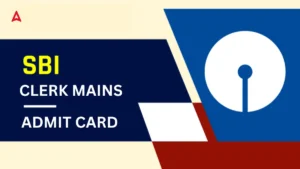
Dear Students, These days bank exams have become very competitive in nature. Especially English section has witnessed drastic change in the type of questions asked and difficulty level. We are providing to you “twisted one” For English Sections of RBI Grade B 2017, so that you can all practice questions and be ready for the exam.
Directions (1-5): Read the following passage and answer the questions based on it. Some words have been highlighted in bold.
Later Maya occupations of the Yucatan Peninsula site called Colha have undergone excavation since 1979. In 1993, researchers made the first systematic effort to document a pre-ceramic presence at the tropical, forested location. Early Colha farmers inhabited the area in two phases.
There are stone tools in deeper soil layers dating from 2500 B.C. to 1700 B.C., based on radiocarbon age estimates of accompanying charcoal bits. Comparable dates come from an adjacent swamp, where pollen analysis documents forest clearance by 2500 B.C.
The pollen provides evidence for the existence of several cultivated crops soon thereafter, mainly corn and manioc, a starchy plant. From about 1400 B.C. to 1000 B.C., Colha residents made foot-shaped stone tools that were chipped and sharpened on one side. Preliminary scanning electron microscope analysis of polish on these tools suggests that inhabitants used them to cut away vegetation after controlled burning of trees, and, perhaps, also to dig.
An example of the same tool, known as a constricted uniface, also emerged last year at Pulltrouser Swamp, a Maya site 20 miles northwest of Colha with a preliminary radiocarbon date of 1300 B.C. to 1000 B.C. for the artefact. Its unusual design led researchers to suspect that Colha might have harboured an extremely early Maya population. Another sharpened stone point retrieved at Pulltrouser Swamp dates to between 2500 B.C. and 2000 B.C. Several other sites in Belize have yielded constricted unifaces, but archaeologists have been unsure of their ages and origins.
Techniques used to manufacture constricted unifaces show gradual refinement and modification in stone tools of Colha residents living after 1000 B.C. Continuity in stone tool design and manufacture suggests that pre-ceramic Maya inhabited Colha, rather than non-Maya peoples who migrated to the area and later left or were incorporated into Maya villages. ―None of us had any reason to suppose that Colha would produce a pre-ceramic Maya occupation, remarks the director of excavations at Cuello, a Maya site that dates to about 1000 B.C. ―This is a bit of archaeological serendipity. This is evidence of the earliest known Maya, who cleared and farmed land bordering swamps by 2,500 B.C. The earliest Central American farmers probably settled at the edges of swampland that they had cleared and cultivated. Excavations of preceramic Colha so far have focused on quarry and field areas. However, some pottery may still show up in early residential structures.
Q1. The recent findings presented by the author in the passage provide new insight into Mayan civilization because:
(a) Mayans may have settled extensively throughout the Yucatan
peninsula.
(b) ceramic pottery may have been used by the Mayans.
(c) Mayans may have settled in regions much earlier than previously
thought.
(d) stone tools were never used by the Mayans.
(e) Mayans may actually be linked to Red Indians
Q2. In the context of the passage, the author quotes the use of the term ―archaeological serendipity‖ (line 33) to refer to:
(a) the discovery of stone tools.
(b) the unexpected findings that gave researchers a new understanding of ancient settlements.
(c) the method used by archaeologists to excavate ancient civilizations.
(d) the Mayan‘s ability to work with their environment.
(e) the possibility that Mayans may actually have used tools made of ceramics
Q3. According to the information presented by the author in the passage, analysis of the stone tools retrieved from Colha led researchers to believe all of the following EXCEPT:
(a) a population of pre-ceramic Mayans existed who used and designed stone tools.
(b) Mayans had settlements prior to 1000 B.C.
(c) non-Maya peoples inhabited the area before the Mayans migrated and took over.
(d) the tools underwent various stages of development.
(e) tools used by the Mayans were not only restricted to ceramic material
Q4. What is the meaning of the word ‘retrieve’?
(a) find or extract
(b) exploit or damage
(c) retribution
(d) distribute
(e) denunciation
Q5. What is the meaning of the word ‘serendipity’?
(a) hullabaloo
(b) nefarious activities
(c) mixed emotions
(d) happy occurrence
(e) None of these
Directions (6-10): In each of the following sentences, parts of the sentence are left blank. Beneath each sentence, five different ways of completing the sentence are indicated. Choose the best alternative from among the five options.
Q6. Ironically, the conditions of the unorganized class of workers are far __________ in those states that boast __________ per capita incomes and high minimum wages.
(a) worse, high
(b) worse, low
(c) better, high
(d) safer, higher
(e) subhuman, low
Q7. The __________ nature of the food inflation over the last year has brought the acuteness of food __________ in India into political focus.
(a) truculent, scarcity
(b) persistent, insecurity
(c) hostile, shortage
(d) unrelenting, surplus
(e) repugnant, conference
Q8. The food procurement policy of the government had two objectives: __________ regional distribution of food grains at __________ prices and the provision of a fair price to farmers.
(a) restricted, low
(b) limited, fair
(c) just, low
(d) equal, reasonable
(e) equitable, reasonable
Q9. The situation in Kashmir has always been __________, but policymaking in New Delhi, which has remained “one track”, has only helped to __________ it further.
(a) sensitive, alleviate
(b) confounded, exacerbate
(c) fragile, aggravate
(d) violent, assuage
(e) peaceful, spoil
Q10. Being unsure of itself, reform is pursued __________ by a coalition government constantly __________ of voters’ reactions.
(a) vigorously, hopeful
(b) slowly, chary
(c) hesitantly, wary
(d) nervously, circumspect
(e) reluctantly, eager
Directions (11-15): In each of the following questions, there are four sentences or parts of sentences that from a paragraph. Identify the sentence(s) or part(s) of sentence(s) that is/are correct in terms of grammar and usage (including spelling, punctuation and logical consistency). Then, choose the most appropriate option.
Q11. A. Its one thing to win power, another to wield it.
B. Two disspirited leaders met in Delhi this week.
C. President Obama was chastened by dramatic electoral losses in the US Congress and Prime Minister Manmohan Singh disheartened by never ending corruption scandals.
D. Both seemed to have forgot the fundamentals of what created their respective democracies.
(a) A and B
(b) C and D
(c) A and C
(d) B and D
(e) None of the above
Q12. A. Just like America’s founding fathers were obsessed with liberty,
B. so were Indias founders deeply attached to dharma-so much so that they placed
C. the dharma-chakra in the middle of Indian flag.
D. The Congress party still does not realize how much it has diminished by the relentless series of corruption scandals.
(a) All are correct
(b) All are incorrect
(c) A and D
(d) B and C
(e) None of the above
Q13. A. Her words had the desired effect.
B. and when he had reached her place, he stopped for longer than he had intended to.
C. Throughout the drive to her home,
D. he had kept thinking about how much he would miss her.
(a) All are correct
(b) All are incorrect
(c) A and D
(d) B and C
(e) None of the above
Q14. A. Couldn’t make it to Arnab’s show tonight. Nor to Rahul’s (Headlines Today).
B. The topic on both were the same – it’s the big story about Raakhi Sawant’s
C. show timing getting changed to a later slot.
D. But hopefully kids won’t be awake to watch this rubbish. So… it’s all good.
(a) All are correct
(b) All are incorrect
(c) A, C and D
(d) A, B and C
(e) None of the above
Q15. A. Liquid Comics, an entertainment company found by three Indians
B. have announced the digital iPad release of “Untouchable”,
C. a graphic novel with a supernatural horror twist
D. exploring various themes of racial prejudice during the British Raj.
(a) A and B
(b) C and D
(c) A and C
(d) B and D
(e) None of the above




 GA Capsule for SBI Clerk Mains 2025, Dow...
GA Capsule for SBI Clerk Mains 2025, Dow...
 The Hindu Review October 2022: Download ...
The Hindu Review October 2022: Download ...
 SBI Clerk Mains Admit Card 2025 Out, Dir...
SBI Clerk Mains Admit Card 2025 Out, Dir...







